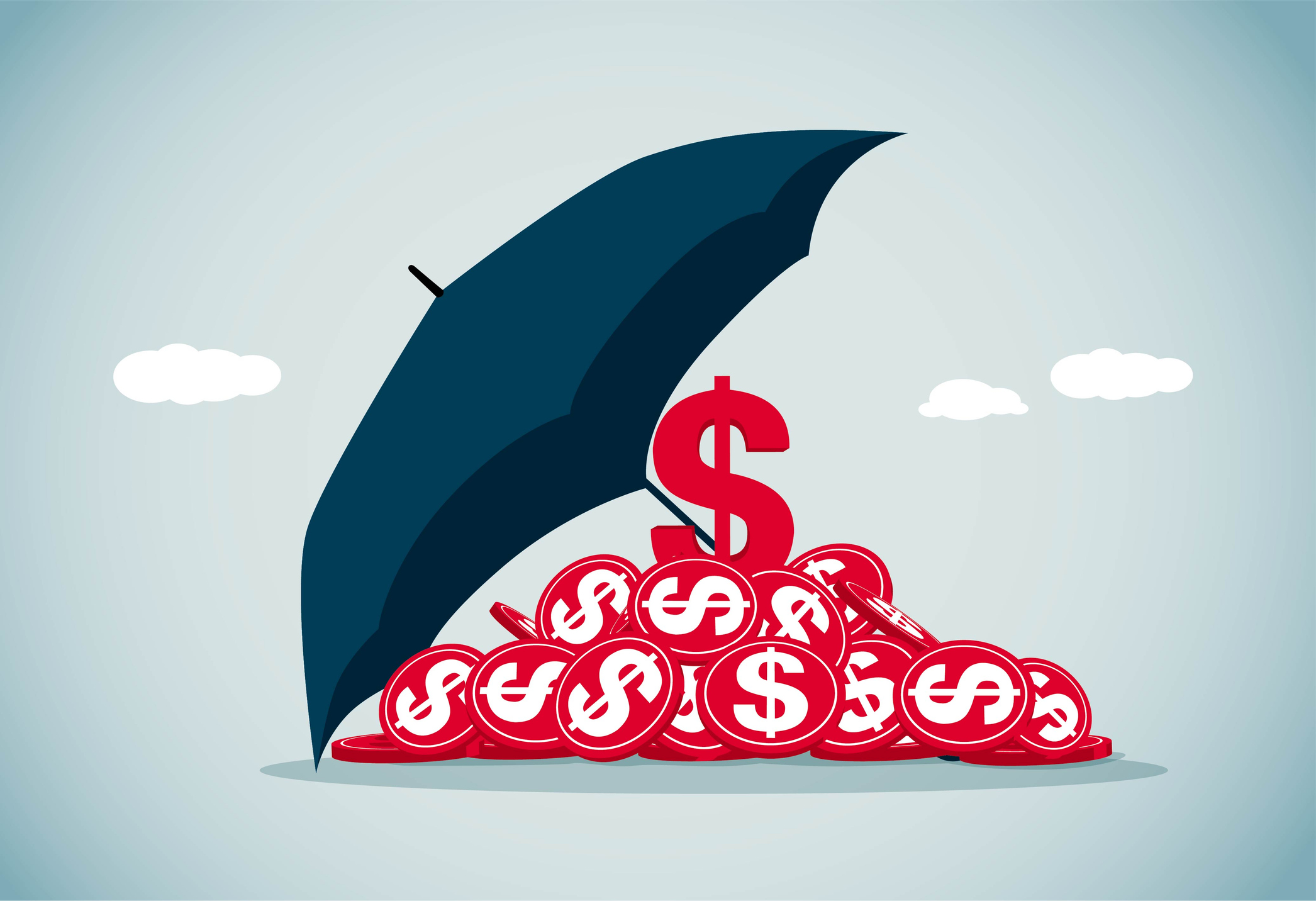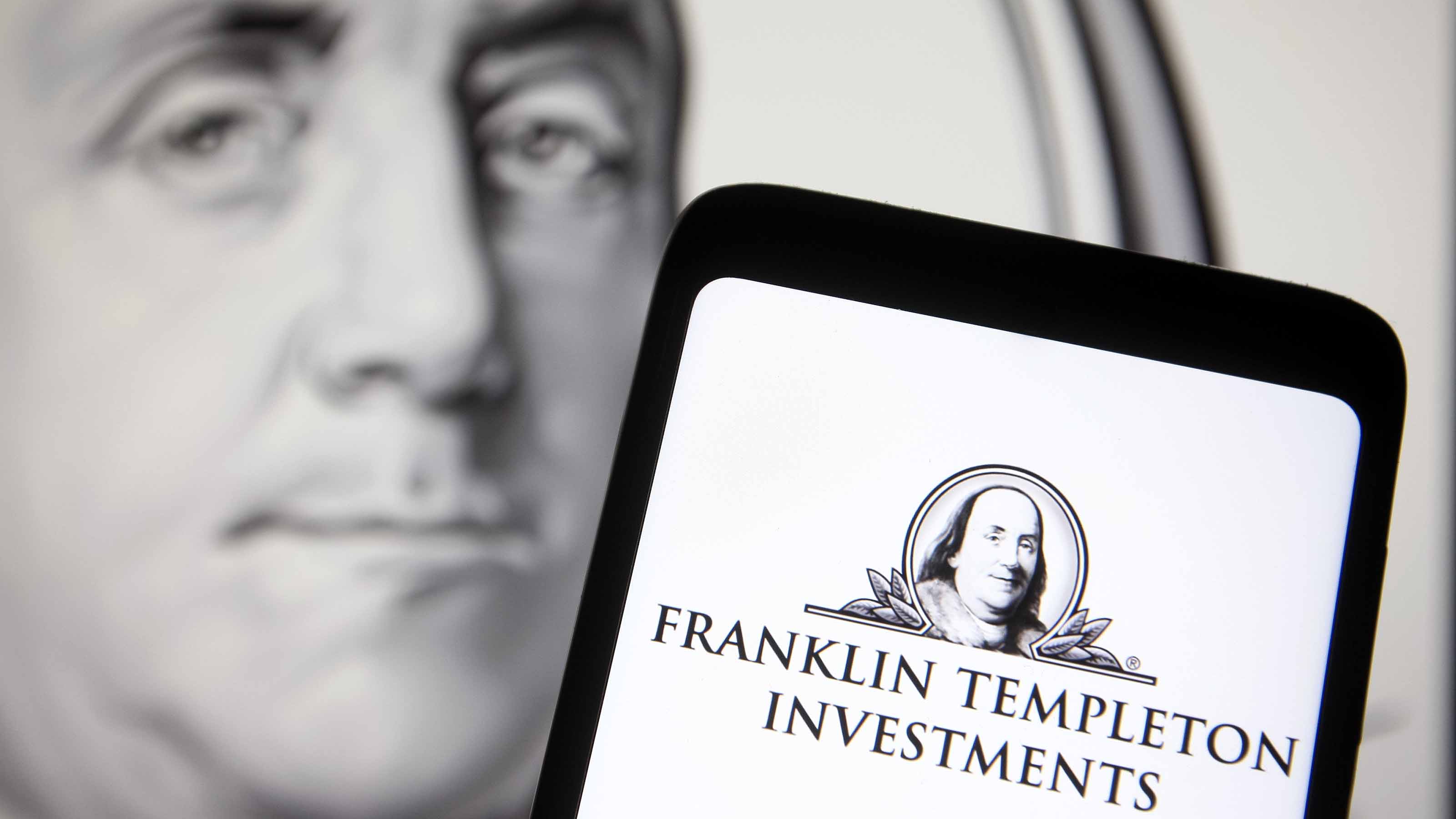The Best Defensive ETFs to Protect Your Portfolio
The best defensive ETFs can help ease investors' worries about volatility across the stock and bond markets.


Profit and prosper with the best of Kiplinger's advice on investing, taxes, retirement, personal finance and much more. Delivered daily. Enter your email in the box and click Sign Me Up.
You are now subscribed
Your newsletter sign-up was successful
Want to add more newsletters?

Delivered daily
Kiplinger Today
Profit and prosper with the best of Kiplinger's advice on investing, taxes, retirement, personal finance and much more delivered daily. Smart money moves start here.

Sent five days a week
Kiplinger A Step Ahead
Get practical help to make better financial decisions in your everyday life, from spending to savings on top deals.

Delivered daily
Kiplinger Closing Bell
Get today's biggest financial and investing headlines delivered to your inbox every day the U.S. stock market is open.

Sent twice a week
Kiplinger Adviser Intel
Financial pros across the country share best practices and fresh tactics to preserve and grow your wealth.

Delivered weekly
Kiplinger Tax Tips
Trim your federal and state tax bills with practical tax-planning and tax-cutting strategies.

Sent twice a week
Kiplinger Retirement Tips
Your twice-a-week guide to planning and enjoying a financially secure and richly rewarding retirement

Sent bimonthly.
Kiplinger Adviser Angle
Insights for advisers, wealth managers and other financial professionals.

Sent twice a week
Kiplinger Investing Weekly
Your twice-a-week roundup of promising stocks, funds, companies and industries you should consider, ones you should avoid, and why.

Sent weekly for six weeks
Kiplinger Invest for Retirement
Your step-by-step six-part series on how to invest for retirement, from devising a successful strategy to exactly which investments to choose.
Various stock market indicators have flashed warning signs in 2025 amid the implementation of President Donald Trump's tariffs policy in the first half of the year and a government shutdown in the second half.
One of the most well-known sentiment gauges, CNN's Fear & Greed Index, wallowed in "Extreme Fear" territory through April 21 before recovering to "Extreme Greed" as of July 17. It swung to "Fear" in early October, then back to "Extreme Fear" in early November.
This benchmark measures market sentiment using factors such as stock price momentum, put and call options and volatility.
Meanwhile, the Cboe Volatility Index (VIX) — which tracks expected volatility in the S&P 500 based on options pricing and is often called Wall Street's "fear gauge" — surged as high as 60.13 on April 7, then 28.99 on October 17.
A rising VIX suggests that investors are preparing for more market turbulence ahead. The "normal" range for the VIX is from 12 to 20.
Adding to the concern is the Buffett Indicator, which compares the total U.S. stock market's value with gross domestic product (GDP).
As of November, it sits at 217%, well above historical norms.
Even Warren Buffett himself appears cautious as he retires — his company, Berkshire Hathaway (BRK.B), is sitting on a record $381 billion in cash while trimming long-held positions in his portfolio.
If you're looking to take a defensive approach and protect your portfolio against potential downside risk, defensive ETFs can help. Here's what you need to know.
What makes an ETF defensive?
For equity exchange-traded funds, defensiveness is often measured by beta, a metric that tracks how much an ETF fluctuates relative to the overall stock market.
Think of an ETF as a ship and the market as the sea — if the sea gets rough, a sturdy, well-balanced ship (low-beta ETF) will sway far less than a smaller, top-heavy vessel (high-beta ETF).
Since the market has a beta of 1, defensive ETFs tend to have a beta well below that, meaning they experience smaller price swings on average.
Some ETFs are explicitly designed for low volatility. For instance, certain funds screen stocks from the S&P 500 based on their historical beta, selecting only the least historically volatile subset of stocks.
Other ETFs naturally have lower beta due to the defensive sectors they target. Consumer staples, health care and utility funds tend to be more stable since demand for food, medicine and electricity remains inelastic — meaning people continue to buy these essentials regardless of economic conditions.
For bond ETFs, defensiveness is a function of credit quality and duration. ETFs holding high-quality bonds, such as U.S. Treasuries, tend to be more resilient during downturns since investors flock to them as safe havens.
On the other hand, high-yield "junk" bond ETFs might see steep losses as the creditworthiness of their issuing companies gets called into question during economic downturns.
Similarly, bond ETFs with lower duration tend to hold up better when interest rates rise. Duration measures a bond's sensitivity to interest rate changes, so short-term bond ETFs are less volatile than long-term bond ETFs, which suffered significant losses in 2022 amid rising rates and high inflation.
A common mistake with defensive ETFs is using them tactically — that is, rotating into them after a market downturn to try and minimize losses. This is just market timing; a strategy that often backfires as investors tend to react too late after much of the damage has already been done.
If you're going to invest defensively, it should be a long-term component of your allocation strategy. Have a plan for how much exposure to defensive ETFs you want and when to rebalance, and stick to it.
How we chose the best defensive ETFs to buy
We screened out ETFs that rely on complex, derivative-based hedging strategies. These products, while useful for institutional investors and advisers, tend to be costly and impractical for DIY retail investors.
Instead, we focused on fixed-income and equity ETFs that demonstrated resilience during major downturns — particularly the March 2020 COVID-19 crash and the 2022 bear market. These periods were stress tests for defensive assets, revealing which ETFs effectively preserved capital when markets sold off.
We also screened for reputability, ensuring that each ETF has sufficiently high assets under management (AUM) — a key measure of fund size. ETFs with low AUM face a higher risk of closure, and those with low trading volume tend to have wider bid-ask spreads, making them more expensive to buy and sell.
Finally, cost matters, so we prioritized ETFs with reasonable expense ratios. There's no point in avoiding market losses if high fees erode your potential gains.
Data is as of November 12. Dividend yields on equity funds represent the trailing 12-month yield, which is a standard measure for equity funds. Yields on bond funds are SEC yields, which reflect the interest earned after deducting fund expenses for the most recent 30-day period.

Invesco S&P 500 Low Volatility ETF
- Assets under management: $7.3 billion
- Expenses: 0.25%
- 30-day median bid-ask spread: 0.01%
- Dividend yield: 1.9%
The Invesco S&P 500 Low Volatility ETF (SPLV) sifts through S&P 500 stocks once per calendar quarter, selecting the 100 components with the lowest 12-month realized volatility.
Compared with the broader S&P 500, it has a higher weighting toward defensive sectors such as consumer staples, utilities and health care. It also pays monthly distributions.

Franklin U.S. Low Volatility High Dividend Index ETF
- Assets under management: $585.4 million
- Expenses: 0.27%
- 30-day median bid-ask spread: 0.02%
- Dividend yield: 3.3%
The Franklin U.S. Low Volatility High Dividend Index ETF (LVHD) is an alternative to SPLV, selecting high-yield stocks from the Solactive U.S. Broad Market Index.
To qualify, a company must also be profitable over its last four fiscal quarters and is projected to remain profitable over the next four quarters based on consensus analyst earnings forecasts.
Individual stocks are capped at 2.5% weightings, sectors at 25%, with real estate limited to 15%. The portfolio consists of 50 to 100 holdings, rebalanced quarterly and reconstituted annually.
Learn more about LVHD at the Franklin Templeton provider site.

Pacer Trendpilot US Large Cap ETF
- Assets under management: $3.5 billion
- Expenses: 0.60%
- 30-day median bid-ask spread: 0.07%
- Dividend yield: 0.7%
The Pacer Trendpilot US Large Cap ETF (PTLC) operates like an S&P 500 index fund with an on-off switch.
It remains fully invested in the S&P 500 when the index trades above its 200-day simple moving average (SMA) for five consecutive business days.
However, if the index closes below its 200-day SMA for five consecutive business days, the fund shifts 50% into three-month U.S. Treasury bills.
If the S&P 500's 200-day SMA drops below its value from five business days earlier, PTLC moves entirely into Treasury bills, taking a fully defensive position.

Vanguard Short-Term Inflation-Protected Securities ETF
- Assets under management: $16.6 billion
- Expenses: 0.03%
- 30-day median bid-ask spread: 0.02%
- 30-day SEC yield: 1.2%
Rising interest rates push bond prices down because newly issued bonds offer higher yields, making older bonds with lower rates less attractive.
Rate hikes often occur to combat inflation, which poses a second problem — fixed-income investments lose purchasing power as the cost of goods rises.
A practical solution is the Vanguard Short-Term Inflation-Protected Securities ETF (VTIP), which holds Treasury Inflation-Protected Securities (TIPS).
These bonds adjust based on inflation, helping to preserve real returns. VTIP is particularly resilient to rising rates because of its short 2.5-year average duration.

iShares Aaa - A Rated Corporate Bond ETF
- Assets under management: $1.6 billion
- Expenses: 0.15%
- 30-day median bid-ask spread: 0.02%
- 30-day SEC yield: 4.5%
The minimum credit rating for a corporate bond to qualify as investment grade is BBB. But going higher provides more protection at the cost of a lower yield — a fair trade-off in uncertain market environments.
The iShares Aaa - A Rated Corporate Bond ETF (QLTA) requires its holdings to be rated A to Aaa, making it more defensive than the average corporate bond fund while still offering a higher yield than Treasuries.
Learn more about QLTA at the iShares provider site.
Related content
Profit and prosper with the best of Kiplinger's advice on investing, taxes, retirement, personal finance and much more. Delivered daily. Enter your email in the box and click Sign Me Up.
Tony started investing during the 2017 marijuana stock bubble. After incurring some hilarious losses on various poor stock picks, he now adheres to Bogleheads-style passive investing strategies using index ETFs. Tony graduated in 2023 from Columbia University with a Master's degree in risk management. He holds the Certified ETF Advisor (CETF®) designation from The ETF Institute. Tony's work has also appeared in U.S. News & World Report, USA Today, ETF Central, The Motley Fool, TheStreet, and Benzinga. He is the founder of ETF Portfolio Blueprint.
-
 Ask the Tax Editor: Federal Income Tax Deductions
Ask the Tax Editor: Federal Income Tax DeductionsAsk the Editor In this week's Ask the Editor Q&A, Joy Taylor answers questions on federal income tax deductions
-
 States With No-Fault Car Insurance Laws (and How No-Fault Car Insurance Works)
States With No-Fault Car Insurance Laws (and How No-Fault Car Insurance Works)A breakdown of the confusing rules around no-fault car insurance in every state where it exists.
-
 7 Frugal Habits to Keep Even When You're Rich
7 Frugal Habits to Keep Even When You're RichSome frugal habits are worth it, no matter what tax bracket you're in.
-
 The Best Precious Metals ETFs to Buy in 2026
The Best Precious Metals ETFs to Buy in 2026Precious metals ETFs provide a hedge against monetary debasement and exposure to industrial-related tailwinds from emerging markets.
-
 For the 2% Club, the Guardrails Approach and the 4% Rule Do Not Work: Here's What Works Instead
For the 2% Club, the Guardrails Approach and the 4% Rule Do Not Work: Here's What Works InsteadFor retirees with a pension, traditional withdrawal rules could be too restrictive. You need a tailored income plan that is much more flexible and realistic.
-
 Retiring Next Year? Now Is the Time to Start Designing What Your Retirement Will Look Like
Retiring Next Year? Now Is the Time to Start Designing What Your Retirement Will Look LikeThis is when you should be shifting your focus from growing your portfolio to designing an income and tax strategy that aligns your resources with your purpose.
-
 I'm a Financial Planner: This Layered Approach for Your Retirement Money Can Help Lower Your Stress
I'm a Financial Planner: This Layered Approach for Your Retirement Money Can Help Lower Your StressTo be confident about retirement, consider building a safety net by dividing assets into distinct layers and establishing a regular review process. Here's how.
-
 Stocks Sink With Alphabet, Bitcoin: Stock Market Today
Stocks Sink With Alphabet, Bitcoin: Stock Market TodayA dismal round of jobs data did little to lift sentiment on Thursday.
-
 The 4 Estate Planning Documents Every High-Net-Worth Family Needs (Not Just a Will)
The 4 Estate Planning Documents Every High-Net-Worth Family Needs (Not Just a Will)The key to successful estate planning for HNW families isn't just drafting these four documents, but ensuring they're current and immediately accessible.
-
 Love and Legacy: What Couples Rarely Talk About (But Should)
Love and Legacy: What Couples Rarely Talk About (But Should)Couples who talk openly about finances, including estate planning, are more likely to head into retirement joyfully. How can you get the conversation going?
-
 How to Get the Fair Value for Your Shares When You Are in the Minority Vote on a Sale of Substantially All Corporate Assets
How to Get the Fair Value for Your Shares When You Are in the Minority Vote on a Sale of Substantially All Corporate AssetsWhen a sale of substantially all corporate assets is approved by majority vote, shareholders on the losing side of the vote should understand their rights.

